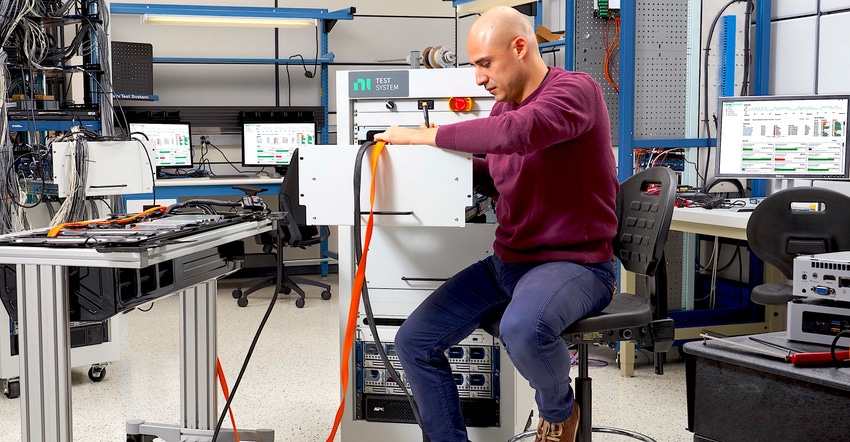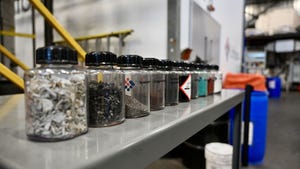New transportation business unit general manager Drita Roggenbuck sees primary industry challenges this year.
February 4, 2022

While Drita Roggenbuck is new in her role as senior vice president and general manager for NI’s Transportation Business Unit, she arrives with two decades worth of insight into the critical trends facing the industry. “Her insights into NI’s automotive customer’s challenges and their need to rapidly innovate in this dynamically changing market will help to inform our system road maps,” said Ritu Favre, executive vice president and general manager of NI’s Industry Specific Business Unit.
The significant areas she identifies for automotive testing are batteries and advanced driver assistance systems (ADAS). “Near term, our biggest impact will be there in that area of battery and in ADAS,” Roggenbuck said.
“There are some really cool things out there. There are one hundred battery EVs coming out by the end of 2024,” she said. “Testing has to be a part of launching these vehicles. It is amazing, at the rate they are moving. What the automotive companies will learn (from testing) will only enhance how they’ll bring their autonomous vehicles to market.”
The recent General Motors recall of Chevrolet Bolt EVs for battery fires serves as a timely reminder of how important testing and validation of batteries will be in the EV era. Fortuntely, NI already doubled down in this space with recent acquisitions of battery test instruments and systems firm NH Research as well as the EV Systems business of high-voltage power systems supplier Heinzinger, putting the company in a good position to help other OEMS avoid any such problems in the future.
“On the battery side, we’ve had some great acquisitions recently that brings in an industry leader and coupled with NI’s capabilities, will help validate batteries,” said Roggenbuck. “Those new batteries hitting the market are being tested to a high level of scrutiny.”
|
The Bolt battery problems resulted from assembly flaws, so improving manufacturing accuracy is also crucial. “The focus will really be on how we can help in the manufacturing realm as well,” she said.
Meanwhile, the industry is suffering from semiconductor shortages, and Roggenbuck predicts that automotive OEMs will seek to reduce exposure to this problem through integration of systems into few processor chips to are responsible for more tasks.
“How can they make modules smarter, not using as many semiconductors?” Roggenbuck asked. “How they optimize the use of these semiconductors will only help with possible future shortages. There are a lot of concepts out there of managing the supply chain. Understanding how to consolidate and how the supply chain is transformed will be the semiconductor solution in the near future.”
Meanwhile, Roggenbuck says that she will enjoy watching the industry’s shift to electric vehicles gain speed this year. “The amount of adoption of consumers has doubled in the last year,” she said. “I think 2022 is going to be a great year. It is going to be interesting to see how many of these vehicles will be on the road. By the end of 2025 I think it is going to be the norm.”
If so, that will be partly thanks to the ability of OEMs and suppliers being able to validate new designs through testing.
About the Author(s)
You May Also Like




